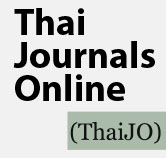
วัฒนธรรมการค้า : เป็นยิ่งกว่าแค่เศรษฐกิจหรือวัฒนธรรม
COMMERCIAL CULTURES : TRANSCENDING THE CULTURAL AND THE ECONOMIC
โดย ดำรงพล อินทร์จันทร์ / By Damrongphon Inchan
Damrong Journal, Vol 5, No.1, 2006
บทคัดย่อ:
บทความชิ้นนี้แปลความและเรียบเรียงจากงานของ Peter Jackson (2002) เรื่อง “Commercial cultures: transcending the cultural and the economic.” งานชิ้นนี้กล่าวถึงการบรรจบกันระหว่างเศรษฐกิจและวัฒนธรรม ถือเป็นงานสำรวจการตอบโต้กันทางภูมิสังคมและวัฒนธรรมการค้าร่วมสมัยซึ่งตามเนียมแล้ว ‘วัฒนธรรม’มักเกี่ยวข้องกับความหมาย ในทางสร้างสรรค์ ผลจากจินตนาการและสุนทรียาศาสตร์ ซึ่งเป็นเรื่องที่ห่างไกลจากเรื่องผลประโยชน์ทาง ‘เศรษฐกิจ’ ในทางตรงกันข้ามการค้าก็มักจะถูกนักสังคมศาสตร์ดูถูกว่าเป็นสัญลักษณ์ของโลกแห่งวัตถุที่ไร้ศีลธรรม เป็นภาวะที่โลกมนษย์ตกอยู่ภายใต้ตรรกะแห่งทุน งานชิ้นนี้มีเป้าประสงค์ท้าทายความคิดแบบคู่ตรงข้ามด้วยการสำรวจการนำความแตกต่างทางวัฒนธรรมมาใช้ประโยชน์ในทางการค้าและแสดงสัดส่วนการตลาดที่แฝงอยู่ในวิถีปฏิบัติทางวัฒนธรรม ข้อโต้แย้งเริ่มจากการวิเคราะห์ห่วงโซ่การค้าเชิงเดี่ยวไปสู่วงจรและเครือข่ายอันสลับซับซ้อน โดยมีตัวอย่างจากวัฒนธรรมการค้าร่อชวมสมัย โดยเฉพาะภาคอาหารและแฟชั่น บทความนี้นอกจากจะแสดงความซับซ้อนในตัวเองแล้ว ยังบ่งชี้ในรูปแบบใหม่ในการทำความเข้าใจและความเป็นไปได้ในการแทรกแซงสิ่วที่ดูเหมือนจะมีวัฒนธรรมการบริโภคแทรกอยู่ด้วย การต่อต้านวัฒนธรรมการบริโภคทุกครั้งจะตามมาด้วยกระบวนการทำให้เป็นสินค้าอย่างต่อเนื่อง
ABSTRACT:
This article is translated and edited from "Commercial cultures transcending The cultural and the economic" by Peter Jackson, which is about a convergence between 'the cultural' and 'the economic'. His paper provides a specific take on these issues through an exploration of the contested geographies of contemporary commercial culture. Traditionally, 'culture' has been associated with meaning and creativity, with works of the imagination and aesthetic practices that are far removed from the pursuit of economic profit. By contrast, 'commerce' has conventionally been regarded with disdain by critically mined social scientists, signaling a vulgar and materialistic world, devoid of morality, where human agency is subordinated to the logic of capital. This paper aims to challenge such dualistic thinking by exploring the commodification of cultural difference and by demonstrating that the rational calculus of market is inescapably embedded in a range of cultural practices. The argument moves from and analysis of linear commodity chains to an exploration of more complex circuits and networks, illustrated with examples from contemporary commodity culture, looking specifically at the food and fashion sectors. Rather than demonstrating complexity for it own sake, the objective is to identify new forms of understanding and new possibilities for intervention in what can sometimes seem like an all-encompassing 'consumer culture' where every act of resistance is immediately recuperated in successive rounds of commodification.











